Metabolic Water: Excerpt from Blood, sweat, and tears how much salt do we really need? AHS22
-
Video: https://www.youtube.com/watch?v=tgAIc--ZArM
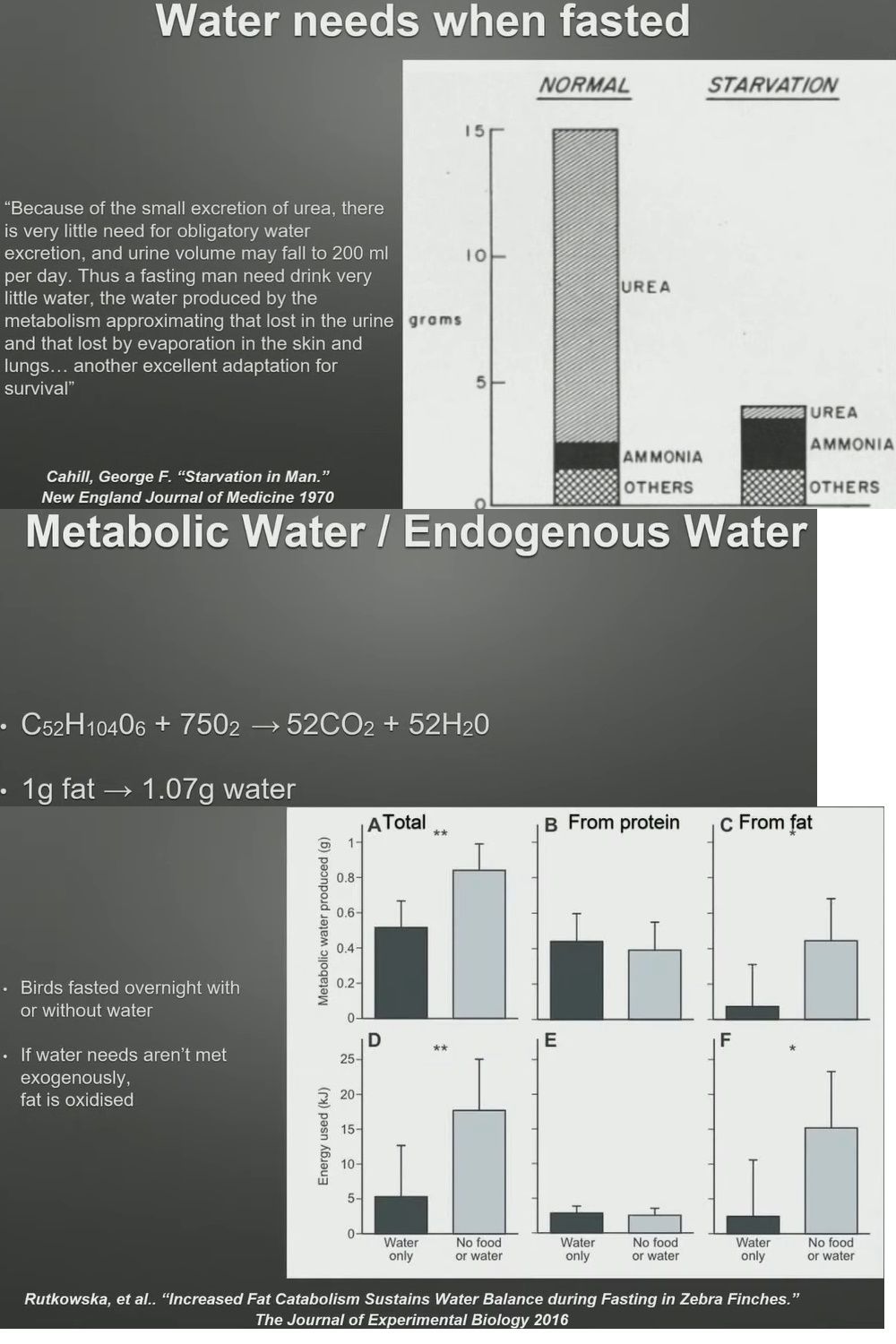
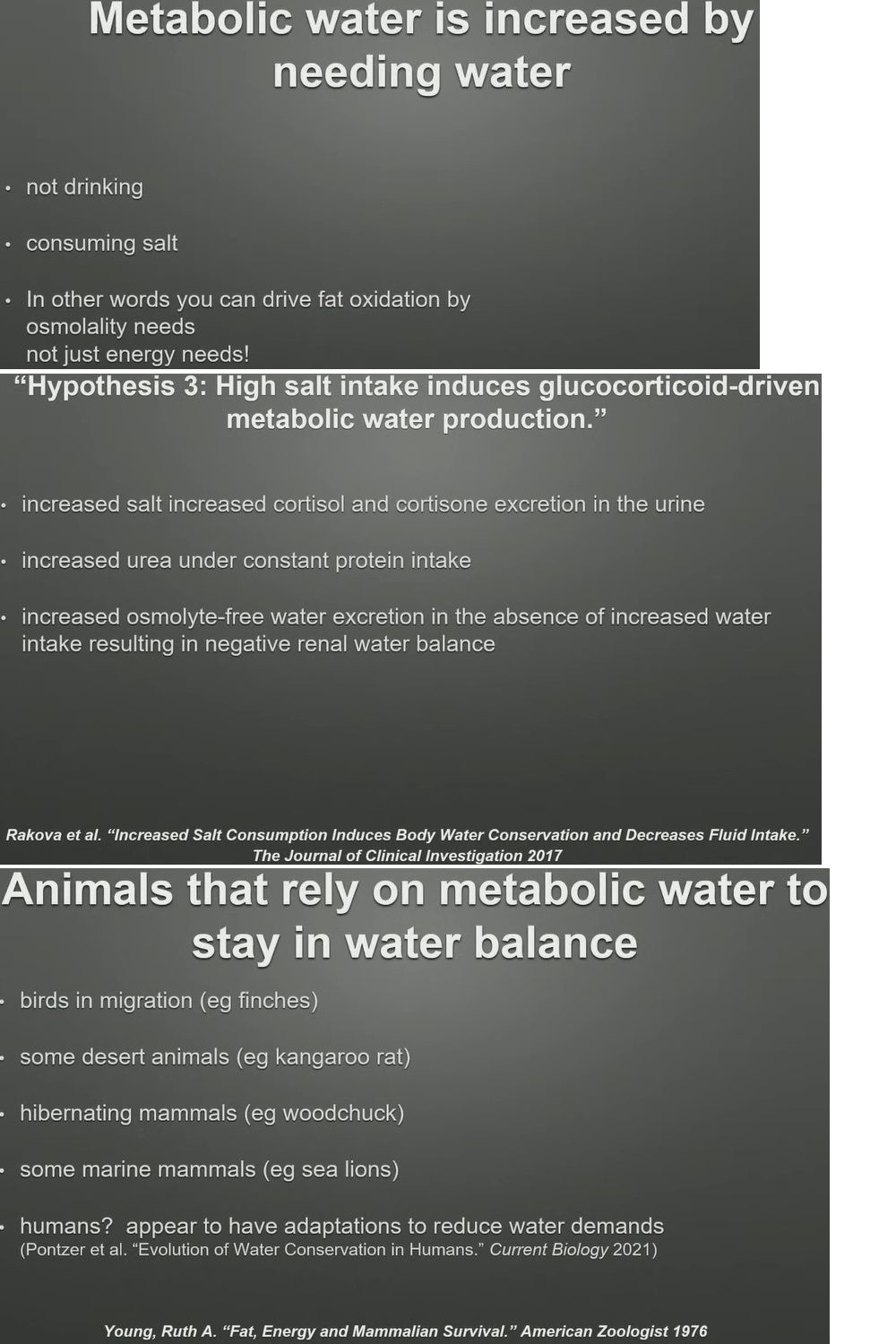
From ChatGPT:
Metabolic water is the water produced internally in an organism as a result of metabolic processes, particularly through the oxidation of nutrients like carbohydrates, fats, and proteins. This process occurs during cellular respiration, where food molecules are broken down to produce energy, and one of the byproducts is water.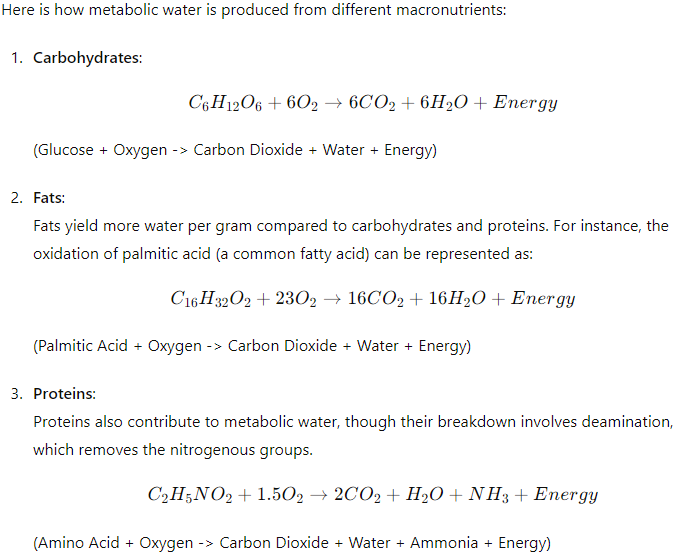
Metabolic water plays a crucial role in the survival of certain animals, especially those living in arid environments where water is scarce. For instance, desert animals like kangaroo rats and camels rely heavily on metabolic water to meet their hydration needs.
-
Effects of endurance exercise on metabolic water production and plasma volume
Abstract
Six endurance-trained and heat-acclimatized adult males ran for 1 h (or until exhaustion) at room temperature (23.8 degrees C) on three occasions. The work loads approximated 37, 56, and 74% of the subjects' aerobic capacities. Venous blood samples were drawn, and urine was collected before and immediately after each exercise bout. Metabolic cost was partitioned by energy substrate, and metabolic water production was quantified from urinary nitrogen, oxygen, and carbon dioxide production. Total body water loss was recorded as the decrease in body weight during the exercise. All subjects completed 1 h of exercise at the two lower exercise intensities but, due to exhaustion, averaged only 35.5 min at the highest work intensity. There were no significant changes in plasma volume after the exercise bouts. Metabolic water production increased with increasing work intensity as did the fraction of total caloric expenditure derived from carbohydrate metabolism. Plasma protein content significantly increased at all levels of exercise intensity. Metabolic water production alone would be of minimal help in plasma volume maintenance and thermoregulation during endurance exercise.
https://pubmed.ncbi.nlm.nih.gov/6706769 -
@AlphaCog interesting ty that fits, so in a survival situation low food (& lower water from food) fat oxidation gives extra water
upping salt a lot increases fat oxidation
(thermogenic effect some ppl mention from upping salt)https://www.ncbi.nlm.nih.gov/pmc/articles/PMC8571049/
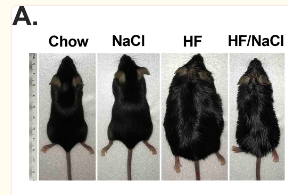
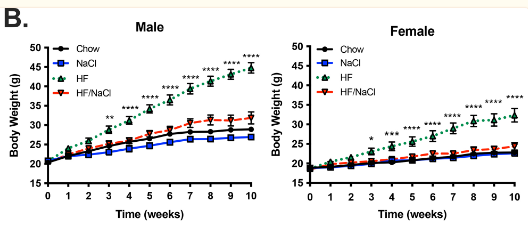
putting it in water gives much less of the effect (but necessary if ingesting a lot because of gut damage)
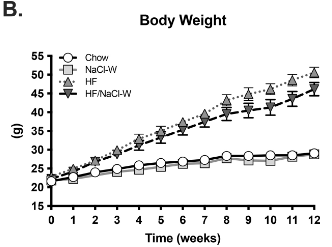
adding later
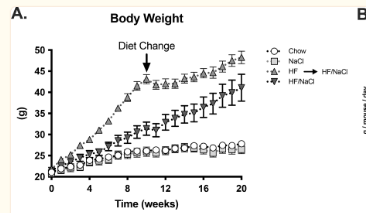
Study in humans where 6g vs 12g salt in humans instead slightly decreased thermogenesis from meals , water intake went up a little
https://www.ncbi.nlm.nih.gov/pmc/articles/PMC8779306/ -
For me salt drives my thirst.